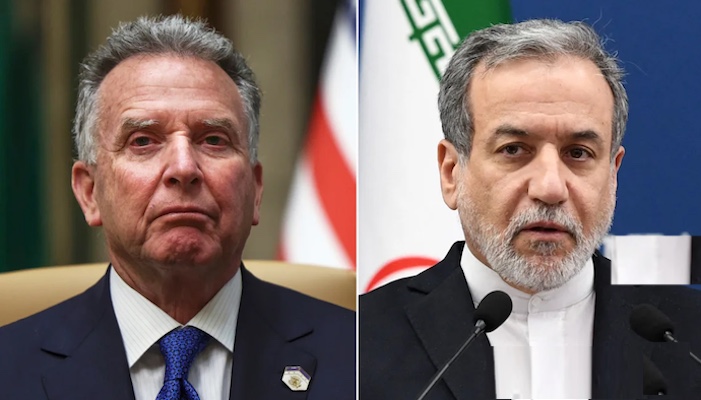
Trump expresses optimism as Iran and US negotiators resume crucial discussions toward a nuclear deal in Oman
US-Iranian negotiators will continue their nuclear deal negotiations on Saturday in Oman.
On Saturday, senior U.S. and Iranian negotiators will have another meeting in Oman with the goal of moving closer to a new deal that would stop Tehran’s quickly developing nuclear program.
Through Omani intermediaries, Trump’s Middle East envoy Steve Witkoff will meet with Iran’s Foreign Minister Abbas Araqchi to engage in indirect negotiations.
This comes after a successful round of negotiations in Rome last week that were seen as constructive by both parties. It is anticipated that the fresh negotiations will start at the expert level and serve as a prelude to direct conversations between the two chief negotiators.
In an interview with Time magazine, US President Donald Trump predicted that a deal will be reached, stating: “I think we’re going to make a deal with Iran.” That being said, he reaffirmed his warning of armed force if diplomacy failed.
Despite their shared commitment to diplomatic efforts, Tehran and Washington continue to have significant disagreements on the nuclear crisis, which has lasted for more than 20 years. By reimposing devastating sanctions and launching a fierce “maximum pressure” campaign against Tehran, Trump’s administration withdrew from the 2015 nuclear agreement between Iran and six major nations in late 2018.
As a result, Iran has violated the agreement, especially with regard to its nuclear program. The UN nuclear watchdog claims that Tehran has accelerated its uranium enrichment since 2019 and that it has now attained up to 60% purity, which is a major step towards the 90% purity needed for weapons-grade uranium.
A new agreement, according to US Secretary of State Marco Rubio, would compel Iran to stop enriching uranium in any way and import any enriched uranium it requires for its nuclear power project in Bushehr.
Tehran, however, is not prepared to make these kinds of compromises. Iranian officials have insisted that stopping their enrichment program and giving up their enriched uranium stockpiles are “red lines” that cannot be crossed, but they have said that their nation will consider negotiating some restrictions on its nuclear program in exchange for the sanctions being lifted.
According to European diplomats, any comprehensive agreement should also include clauses that prohibit Iran from developing the ability to mount a nuclear warhead on a ballistic missile. Tehran, meanwhile, maintains that its missile program is non-negotiable and continues to be a significant point of contention in the negotiations.
Tehran considers its missile program to be an even bigger barrier to an agreement than its nuclear activity, according to an Iranian official familiar with the proceedings.
The world community is closely monitoring the negotiations in the hopes that diplomacy can finally prevent a military escalation and win an agreement that would put an end to Iran’s nuclear ambitions.
All Categories
Recent Posts
Tags
+13162306000
zoneyetu@yahoo.com



